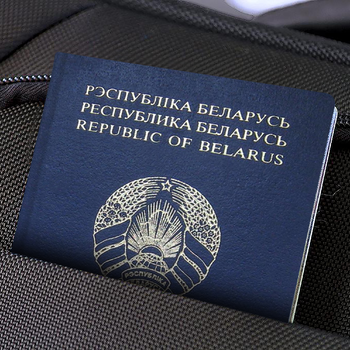
This evening Members of the European Parliament voted in favour of completing the visa facilitation and readmission agreements between the European Union and the Republic of Belarus. Renew Europe sees this as a positive development in the EU-Belarus relations, which is directly to benefit Belarusian people. From now on, Belarusian citizens will acquire a simplified mobility regime and will enjoy a well-managed and secure environment for movement. These changes will also enhance people-to people contacts among the EU and Belarusian citizens.
Ondřej KOVAŘÍK MEP, rapporteur of the file welcomed today's vote:
"The situation in Belarus is worrying and the EU must take a firm position against human rights violations by the state authorities. At the same time we cannot leave the people of Belarus behind, especially now in this difficult period. That is why I am glad that the European Parliament endorsed the agreement between the European Union and Belarus on the facilitation of visa procedures. This is a clear sign that we want to promote further cooperation between us, support people-to-people contacts and help civil society to flourish.
Coming from a former communist country, I know first-hand how important it was for citizens of the former Eastern bloc to be able to travel and keep contacts abroad. I am convinced that allowing Belarussians to travel to the EU easily gives Belarus an opportunity to continue to implement the reforms needed in the area of freedom, security, and justice."
Petras AUŠTREVIČIUS MEP, the European Parliament's Standing Rapporteur on Belarus commented:
"Both agreements were supported by having in mind the needs of Belarusian people, but they should not be interpreted as a breakthrough in the EU-Belarus relations. Significant efforts bringing tangible results have to be made by Belarusian authorities to respect universal fundamental freedoms, rule of law and human rights. The election processes and political system in Belarus do not adhere to European and international standards and do not secure and protect the universal fundamental freedoms. Parliamentary election in 2019 included significant procedural shortcomings, among which were restrictive measures towards the opposition parties and candidates, and demonstrated no improvement in democracy.
Similar restrictive actions are being used in light of the presidential election scheduled for 9 August 2020. Over past days numerous human rights activists and journalists, including but not limited to Uladzimir Vialichkin and Aliaksandr Burakou, and a possible candidate for the presidential election blogger Syarhei Tsikhanouski were detained. Criminal investigations were opened against human rights defender and environmental activist Alena Masliukova and journalist Andrei Miadzvedzeu, among other. The environment in which preparation for the upcoming election take place does not meet the requirements of a free and fair election.
Many of arrests and restrictions occurred due to President Lukashenko’s attempts to deny and to hide the COVID-19 effect on Belarus. Belarusian authorities did not take active measures to flatten the curve and left its population to fight the coronavirus on its own. Such mass events as the nationwide “subbotnik” (unpaid social labor day) and the May 9 military parade in Minsk, were organized despite local and international protest.
Moreover, despite the coronavirus outbreak at the building site of the Belarusian Nuclear Power Plant in Astravyets, Grodno oblast, the construction continues with the nuclear fuel for the first reactor delivered last week. The Belarusian Nuclear Power Plant does not meet the international nuclear safety standards and with its close proximity to the EU’s external border poses a serious threat to the safety and health of European citizens."
- ENDS -